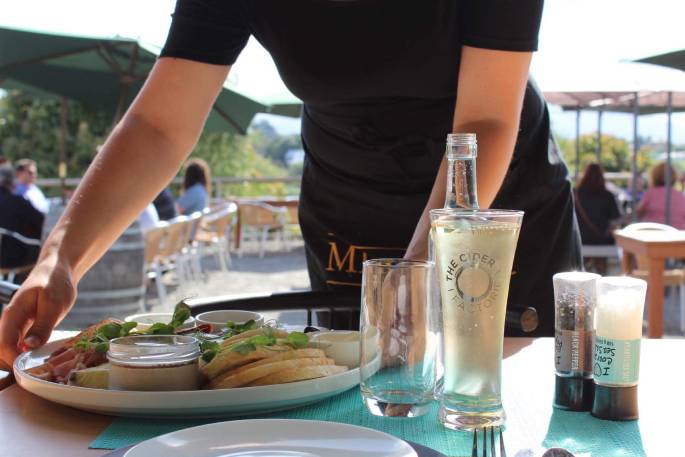The tourism industry is preparing to face the impacts of El Niño during a busy summer.
The weather pattern typically causes dryness in the east and more rain in the west, with stronger than usual winds.
Tourism Industry Aotearoa chief executive Rebecca Ingram says it's always important for businesses to be prepared for severe weather.
But after a year where many discovered the meaning of atmospheric river, Rebecca says that needs became more pressing.
"That has quite significant impacts on the industry whether it be for access to key visitor experiences or roading infrastructure, and so that's something that we will be really keeping an eye on this summer and that we have been working with our members to try and help them prepare for."
TIA has been sharing information and advice with its members about what the possible impacts to them could be. That includes feedback and tips from tourism organisations based in areas that were hit by Cyclone Gabrielle.
Tourism operators traditionally make the most of their money in summer, laying the foundations for the rest of the year, so Ingram was hoping for fewer disruptions.
Forward summer bookings have been looking good for tourism businesses - mostly from the United States and Australia - raising hopes for a much-needed boost.
This marks the second summer since the borders reopened and international travellers returned.
"This time last year we were preparing for a summer of unknowns and we were just at the beginning of our recovery process.
"So we were thrilled in 2023 to be continuing to take positive steps forward and in July to celebrate the one year anniversary of our borders being open."
At the time, the industry predicted it would take two to three years to find its new normal.
"That seems to be playing out accurately."
She anticipates they might reach 80 per cent of pre-Covid levels by the end of the summer.
TIA recently surveyed their members, with 84 per cent saying they felt optimistic about their business and the months ahead.
"That tells me the industry is in good heart and also in a really good mindset as we head into our second summer of recovery."
Earlier this year, the Tourism Adaptation Roadmap was launched by The Aotearoa Circle, which detailed how different climate change scenarios may impact the industry by 2050.
The scenarios ranged from an orderly and equitable transition to net zero carbon by 2050, which put warming on track to be limited to 1.5C; weak action until 2030 before a disorderly rush to lower emissions which was put warming on track to about 2C; to no additional climate policies and a focus on prioritising energy and food security at the expense of climate change, that could see unabated warming with a temperature risk of potentially more than 3C.
Each scenario showed a varying increase in extreme rainfall, fewer snow days, more extreme heat and glacier retreat.
The information has been shared widely with the industry so they can understand what the impacts might be for their businesses, says Rebecca.
For the additional extreme heat days anticipated, Ingram said businesses might need to consider what uniforms their staff wore, how much shade was provided and whether they had enough cooler spaces and water on offer.



0 comments
Leave a Comment
You must be logged in to make a comment.